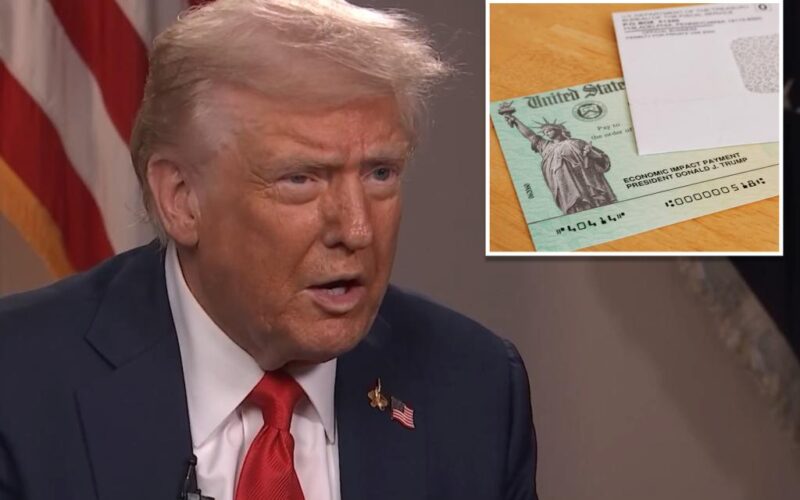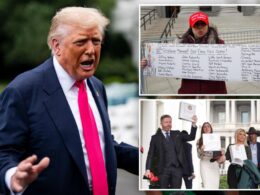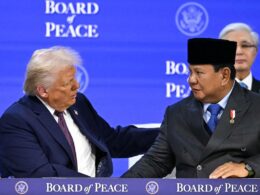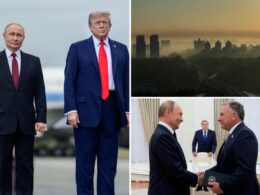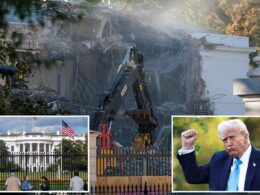President Trump said Thursday that he’s still weighing the idea of giving Americans up to $2,000 in rebates derived from the revenues his tariff agenda has generated.
Trump’s proposal to share some of the hundreds of billions of dollars the federal government has collected since he slapped foreign nations with steep levies in April, comes as the Supreme Court is slated to hear arguments in a case next month that will decide whether the president has the power to impose sweeping global tariffs.
“They’re just starting to kick in,” Trump said of the tariffs in an interview with One America News Network, “but ultimately, your tariffs are going to be over a trillion dollars a year.”
What does he plan to do with the money?
“Number one, we’re paying down debt,” Trump said, “because people have allowed the debt to go crazy.”
The president then argued that the $37 trillion national debt is actually “very little, relatively speaking” because the government is now taking in unprecedented sums of money from tariffs.
“With that being said, we’ll pay back debt, but we also might make a distribution to the people,” Trump continued.
Trump described his plan, which he’s floated before, as “a dividend to the people of America.”
“We’re thinking maybe $1000 to $2,000 – it would be great,” the president said of the size of the checks Americans might get.
Any disbursement from the federal government would require congressional approval.

The federal government has raked in about $214.9 billion in revenues from tariffs this year, according to Fox Business, citing data from the Treasury Department.
The $31.3 billion in tariff revenue collected in September, however, was $73 million less than the August record.
Treasury Secretary Scott Bessent has repeatedly said that he expects the US to generate at least $300 billion in tariff revenue by the end of the year.
In August, the US Court of Appeals for the Federal Circuit ruled that most of the president’s tariffs were not covered by an emergency powers law – a decision that followed two lower courts finding that most of the levies imposed on US trading partners were illegal.
The appeals court allowed Trump’s tariffs to remain in place pending his administration’s appeal to the Supreme Court.
The justices on the high court will hear oral arguments in the case in the first week of November.
Bessent warned the justices in a filing that the government could be forced to refund between $750 billion to $1 trillion in collected and projected tariff revenue if the Supreme Court finds the duties are illegal.




